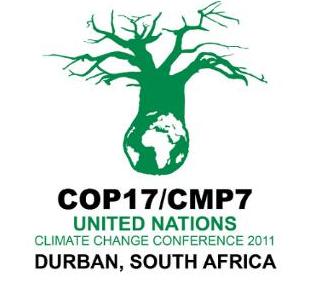“Each year we go in to these discussions hoping to see meaningful changes, but consistently the outcomes are disappointing.”
 In December 2010, international climate change negotiations in Cancun, Mexico wrapped up without any significant compromise or binding deal. We were left hoping that the following year’s 17th Conference of Parties to the United Nations climate talks (COP 17) would produce such action.
In December 2010, international climate change negotiations in Cancun, Mexico wrapped up without any significant compromise or binding deal. We were left hoping that the following year’s 17th Conference of Parties to the United Nations climate talks (COP 17) would produce such action.
In December 2011, COP 17 came to an end in Durban, South Africa. Finally, a new mandate, called the Durban Platform, was put forth to establish a binding agreement. While nothing is set take effect until 2015, the progress sparked hope for government action against one of the most defining challenges of our time.
Still, the high-level negotiations proceeded without consideration for the impacts of climate change or climate policies on local communities.
Global Greengrants Fund’s grantees have already seen the effects of climate change. Many are already leading efforts in their communities to adapt to changing weather. And just as they have in years past,
Check out these reflections from our grassroots experts who where in Durban for the 2011 Climate Talks:
- Samuel Nnah Ndobe, Global Greengrants Fund advisor from Cameroon, spoke to us about the impacts of climate change and policies in Central Africa. Samuel is a leading advocate for the rights of forest-dependent communities whose rights and resources are threatened by certain climate policies, like REDD (Reducing Emissions for Deforestation and forest Degradation).
- Bobby Peek, Global Greengrants Fund advisor from South Africa, organized Dirty Energy Week, a civil society side event that led up to COP 17. He spoke to Real World Radio about COP 17 as the “conference of polluters.”
- Nnimmo Bassey, Global Greengrants Fund advisor from Nigeria, wrote a four-part series in the New Internationalist Blog about the Durban climate talks and the civil society side events that paralleled the talks (“a People’s COP):
